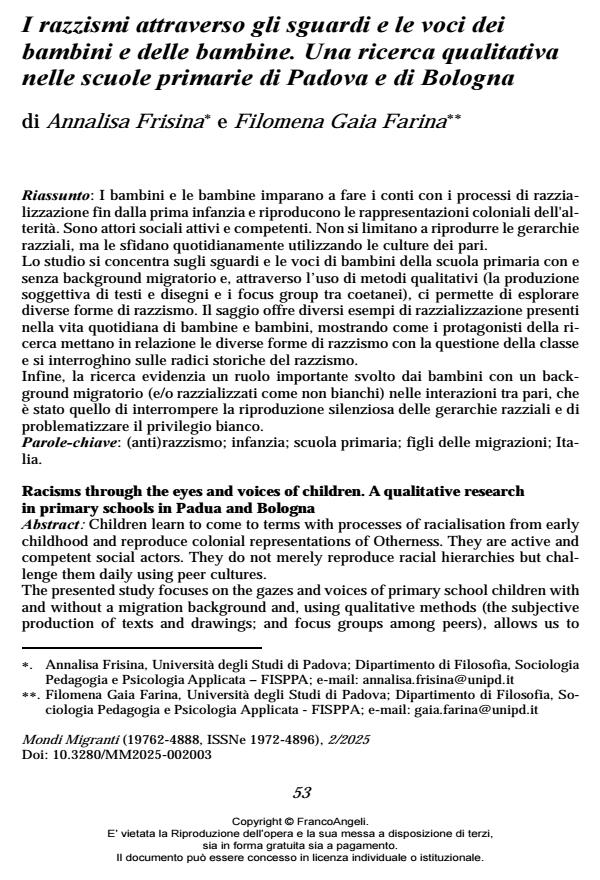Racisms through the eyes and voices of children. A qualitative research in primary schools in Padua and Bologna
Journal title MONDI MIGRANTI
Author/s Annalisa Frisina, Filomena Gaia Farina
Publishing Year 2025 Issue 2025/2
Language Italian Pages 23 P. 53-75 File size 387 KB
DOI 10.3280/MM2025-002003
DOI is like a bar code for intellectual property: to have more infomation
click here
Below, you can see the article first page
If you want to buy this article in PDF format, you can do it, following the instructions to buy download credits

FrancoAngeli is member of Publishers International Linking Association, Inc (PILA), a not-for-profit association which run the CrossRef service enabling links to and from online scholarly content.
Children learn to come to terms with processes of racialisation from early childhood and reproduce colonial representations of Otherness. They are active and competent social actors. They do not merely reproduce racial hierarchies but challenge them daily using peer cultures. The presented study focuses on the gazes and voices of primary school children with and without a migration background and, using qualitative methods (the subjective production of texts and drawings; and focus groups among peers), allows us to explore different forms of racism. The essay offers several examples of racialisation present in the everyday lives of children, showing how the protagonists of the research relate different forms of racism to the issue of class and question the historical roots of racism. Finally, the research highlights an important role played by children with a migration background (and/or racialised as non-white) in peer interactions, which has been to interrupt the silent reproduction of racial hierarchies and problematise white privilege. .
Keywords: (anti)racism; childhood; primary school; children of migrants; Italy
Annalisa Frisina, Filomena Gaia Farina, I razzismi attraverso gli sguardi e le voci dei bambini e delle bambine. Una ricerca qualitativa nelle scuole primarie di Padova e di Bologna in "MONDI MIGRANTI" 2/2025, pp 53-75, DOI: 10.3280/MM2025-002003